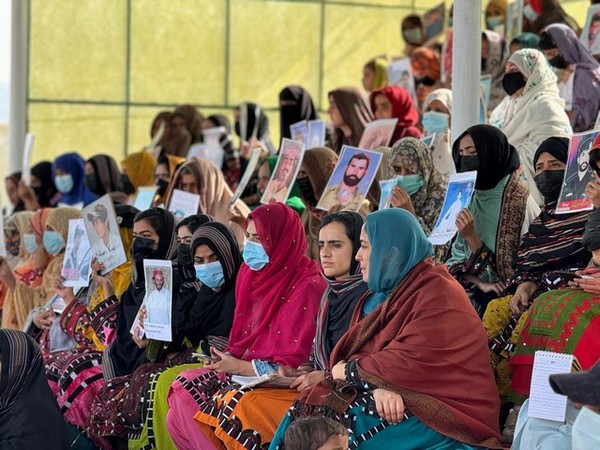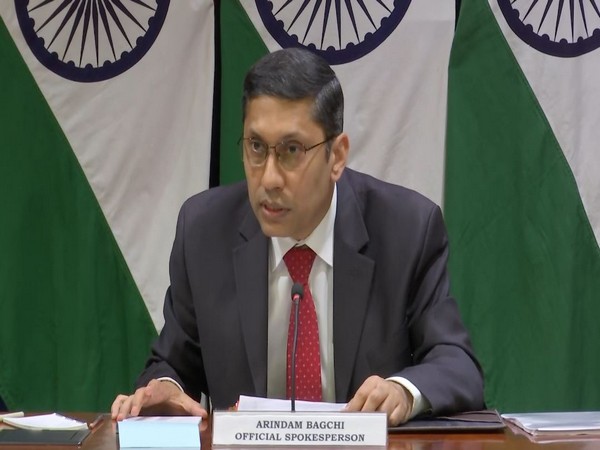Pakistan has been witnessing some significant human rights issues including, extrajudicial killings, enforced disappearance and arbitrary detention among many others. However, their government rarely took credible steps to identify and punish officials who may have committed these abuses, the US said in a report. The US released a report “2023 Country Reports on Human Rights Practices” on Tuesday, highlighting the human rights abuses in various countries.
“Promoting respect for human rights and defending fundamental freedoms is central to who we are as a country. The United States will always support those around the world struggling for human dignity and liberty,” the US State Department stated.
The 2023 Country Reports on Human Rights Practices — required by US law to be submitted to Congress, documents the status of respect for human rights and worker rights in nearly 200 countries and territories.
Some of the significant human rights issues in Pakistan included credible reports of, unlawful or arbitrary killings, including extrajudicial killings, enforced disappearance; degrading treatment or punishment by the government or its agents; harsh and life-threatening prison conditions; arbitrary detention; political prisoners and transnational repression against individuals in another country.
It further included unlawful civilian deaths and enforced disappearance; serious restrictions on freedom of expression and media freedom, including violence against journalists, unjustified arrests and disappearances of journalists; serious restrictions on internet freedom; restrictions of religious freedom; serious government corruption; serious government restrictions on domestic and international human rights organizations; crimes involving violence or threats of violence targeting members of religious, racial and ethnic minorities including members of the Pashtun and Hazara communities and threats of violence motivated by antisemitism.
However, “the government rarely took credible steps to identify and punish officials who may have committed human rights abuses,” the report stated.
Highlighting arbitrary and unlawful killings, the report stated that the human rights organizations claimed that the government agents continued the policy of “kill and dump” in Balochistan, where dissidents were kidnapped, tortured, and killed.
“Security forces reportedly committed extrajudicial killings in connection with conflicts throughout the country,” the report stated. Moreover, there was a significant increase in attacks against police and security forces.
According to the independent think tank Center for Research and Security Studies, there were at least 386 reported deaths of police and military personnel in terrorist attacks and counterterror operations during the first three quarters of 2023. Additionally, the number of attacks and casualties was higher than in 2022 or 2021.
Another ongoing human rights concern in Pakistan includes “Disappearances”. According to Human rights organizations, the authorities arrested and caused the disappearance of Pashtun, Sindhi, and Baloch human rights activists, as well as Sindhi and Baloch nationalists, without cause or warrant.
They also alleged that the children were detained to pressure their parents. Reportedly, activists claimed 500 Sindhis were missing, with more than 142 disappearing in 2022 alone. The Voice for Sindhi Missing Persons reported 80 Sindhi persons disappeared in Sindh Province alone between January and August.
Meanwhile, activists said most of the victims were affiliated with Sindhi nationalist parties, according to the report. “According to the nongovernmental organization (NGO) Voice for Baloch Missing Persons, 177 Baloch persons disappeared in the province between January and July, with an alleged 6,808 persons forcibly disappeared since 2000. The Human Rights Council of Balochistan claimed 351 individuals were forcibly disappeared (including 63 students),” the report noted.
Pakistan has been significantly witnessing cases of arbitrary detention. According to the US report, police reportedly detained individuals to extort bribes for their release or detained relatives of wanted individuals to compel suspects to surrender.
Specifically, ethnic minorities, stateless persons, Afghans, and refugees in the country who lacked official identification documents reported arbitrary arrests, requests for bribes, and harassment by police authorities.
“Afghans, including those legally present and documented, and stateless populations alleged police routinely arrested relatives for the sole purpose of obtaining bribes from family and community members,” the report stated.
Balochistan human rights groups asserted that the police engaged in hostage arrests, the practice of detaining family members of wanted individuals. ‘They reported siblings and parents were most commonly arrested to provide leverage against Baloch nationalists in hiding,” the report added.
The freedom of speech has been affected in Pakistan for years. The journalists suffered high levels of violence, or threats of violence, from state and non-state actors, including political parties. However, the law permitted citizens to criticize the government publicly or privately, but court decisions interpreted the constitution as prohibiting criticism of the military and judiciary.
“In urban and rural areas, journalists continued to face serious crimes, including a report of an acid attack on a woman media worker. According to Freedom Network, a domestic media rights watchdog that tracks violence against journalists and attacks on freedom of expression, between May 2022 and March, there were 140 cases of attacks and other forms of violence against journalists and other media workers,” the report stressed.
The report added, “Both local and foreign journalists reported harassment and intimidation by government officials. Blasphemy and anti-Ahmadi laws (laws prohibiting Ahmadis from self-identifying as Muslims) restricted publication on these topics.” (ANI)



















